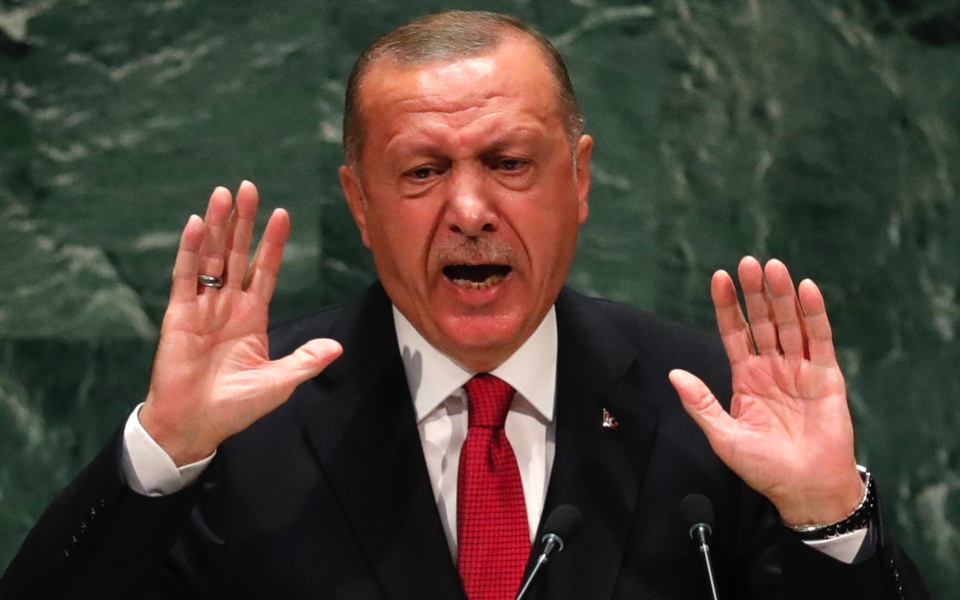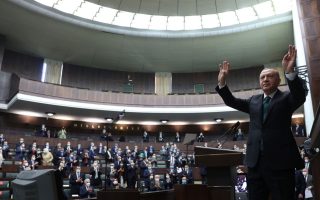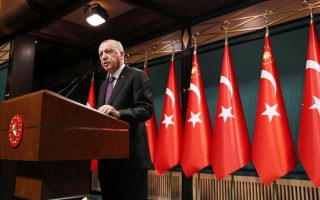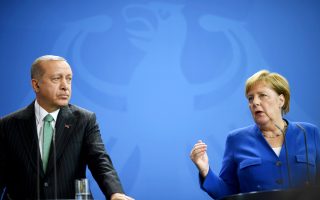West turning up the pressure on Erdogan

All the activity on the international front that we observed last Tuesday obviously concerns us since it included the Greek prime minister’s official visit to Libya. We also had Italian Prime Minister Mario Draghi’s almost simultaneous visit to the same country and a trip to Ankara by European Commission President Ursula von der Leyen and European Council President Charles Michel, not to mention the US State Department’s announcement of targeted sanctions against Turkey’s state military procurements agency and four of its top officials. In the meantime, we also witnessed a significant spike in tension on the Donbass front between Ukraine, Russia and the United States.
Are all these developments related? Yes. They are all part of the policy shift in Washington, signaled by the Biden administration’s decision to pick up the reins of the Western world again, to align all the countries it believes belong in this camp behind the United States, and to reactivate its presence in Europe, the Middle East and other parts of the world. This mobilization is evidently aimed at: a) dealing with geopolitical and economic rivals China and Russia, and b) thwarting their ties with other countries (Germany, Russia or anyone else) or blocs (like the European Union).
The United States has gone back in this new “cold war” to the tactic of decrying human and civil rights abuses and highlighting the democratic shortfall in China, Russia and other countries, like Turkey, that are in the same playground. It is a tried-and-true recipe that was applied by the Carter administration (with Zbigniew Brzezinski as national security adviser), putting the USSR in a very tight spot and contributing to its downfall. The return of this tactic is so far working in Greece’s favor in terms of its disputes with Turkey.
Washington wants Turkey firmly in the Western camp and is making no secret of this. It is seriously put out by the close ties on various levels between Turkish President Recep Tayyip Erdogan and his Russian counterpart, Vladimir Putin, from the acquisition of the S-400 missile defense system and the Turkish establishment tendency to see-saw between the different sides, to the threatening stance toward neighbors like Israel (a very important factor). By citing suppression of human and democratic rights and imposing sanctions, Washington also “forced” Europe, without any clear reactions from Germany, to harden its stance toward Ankara. This is evident from the comments made by von der Leyen and Michel following their meeting with Erdogan.
Greek Prime Minister Kyriakos Mitsotakis was no doubt encouraged to make the trip to Libya, where the Western camp is busy trying to curb the influence of Turkey and Russia. Now we have to see what Erdogan will do, particularly given the pressure he is under in so many vital areas.





